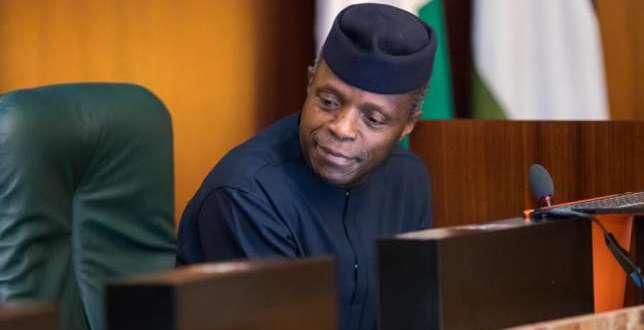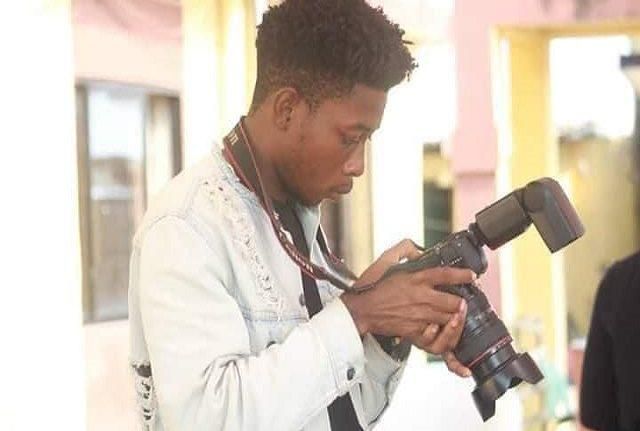#EndSARS: What exactly is the status of SARS?
)
The idea was premised upon the Operation Sweep, formed by former Lagos State Military Administrator, Colonel Buba Marwa around 1997. The same was also recreated in Ibadan, Oyo State under the name Operation Gbale.
Around 2009, SARS found its way into Nigerian Universities as a medium to repress the surge of internet fraud and cultism which had spilled to the streets. This era also coincided with the radicalism of style and fashion evolution amongst Nigerians under 35.
What SARS became was a national scourge that a witch-hunt machinery against Nigerian youth with dreadlocks, piercings, cars, expensive phones and risque means of expression. This led to the #EndSARS campaign, against the constant abuse of office by SARS operatives.
Daily, we hear terrible tales of exploitation of Nigerian youths by SARS operatives. These youths also give in because they don't want to risk time behind bars. The Federal Government ignored Nigerian youths for a while before they finally gave in after years of clamour - at least, it looked like that.
ALSO READ: Victim profiling in Nigeria
Osinbajo order
On August 14, 2018, then acting president, Vice President Yemi Osinbajo, in a statement issued by Osinbajo's spokesperson, Laolu Akande, the Acting President ordered the IGP to shut down the unit "with immediate effect".

The statement read, "Following persistent complaints and reports on the activities of the Special Anti-Robbery Squad (SARS) that border on allegations of human rights violations, His Excellency, Professor Yemi Osinbajo SAN, Acting-President, Federal Republic of Nigeria, has directed the Inspector General of Police to, with immediate effect, overhaul the management and activities of SARS and ensure that any unit that will emerge from the process, will be intelligence-driven and restricted to the prevention and detection of armed robbery and kidnapping, and apprehension of offenders linked to the stated offences, and nothing more.
"The Acting President has also directed the IGP to ensure that all operatives in the emerging unit conduct their operations in strict adherence to the rule of law and with due regard to International Humanitarian Law and the constitutionally guaranteed rights of suspects. The operatives should also bear proper identification any time they are on duty.
"In the meantime, the Acting President has directed the National Human Rights Commission to set up a Committee that will conduct nation-wide investigation of the alleged unlawful activities of SARS in order to afford members of the general public the opportunity to present their grievances with a view to ensuring redress."
Noting that the body could only be rehabilitated and not scrapped, the Vice President saw that SARS was rebranded under the FSARS name, to be handled by the office of the Inspector General of Police.
On January 21, 2018, news filtered in that FSARS was disbanded, but people claimed it was only going back to being SARS under state leadership and not the Inspector General of Police's office.
With the news came outrage that what we fought for had been taken away; our peace gone and a sense of betrayal initiated - we senselessly praised Vice President Osinbajo for restructuring SARS.
Initially, after the restructuring...
SARS became quiet and heroes were made of Segun Awosanya aka Segalink and figures like rap legend, Ruggedman who were vocal people in the struggle to #EndSARS.
SARS went quiet and people went happy, celebration filled social media and people praised the seeming strategic decision to #EndSARS by Vice President Yemi Osinbajo.
But the problem with SARS has never been about the organization. The idea of SARS and the corruption perpetuated by it has always been done by the men behind the movement.
The idea of restructuring SARS after months of accruing complaints on denigration of Nigerian Youth at the hands of SARS operatives always seemed shady.
You cannot change the organization if the men remain in the body, alive and breathing. The name might be gone, but the idea was always going to remain. It becomes worse.
On the other part, the 'restructuring' of SARS never seemed a permanent solution to the problem we had - SARS.
Yinka Badmus

The Nigerian Police Force was already a corrupt organization, abusing power and office at will and for sport, but the story of SARS had been overshadowing their shady dealings.
With the restructuring of SARS and not a complete disbandment and other forms of affirmative action to shelve the continued abuse of office and power, and internalized corruption as well as oppression of Nigerian youths.
The problem was always going to persist and it was never going away as long as the men behind SARS remained steadfast within the breaches of Nigerian security operations.
It was always a problem that was going to fester. It has since been exemplified in the case of Yinka Badmus.
The problem has always been the people, not just the name. We shouldn't have celebrated the news like we did.
The problem was never going away if the people behind SARS and who gave SARS that reputation were not laid off or granted leave for serious affirmative action to stop the abuse of office and power.
Now, SARS might have been restructured, but inevitably, we still have SARS-problems - nothing has changed.
Until we fix the problem with the people who constituted SARS and find a way to understand the era of avant-garde expressionism we live in, with totally no relations to irresponsibility - unless proven otherwise - there will more Yinka Badmuses.
![Aisha blows hot on Security forces; Y7ou won't believe what she said [VIDEO]](https://image.api.sportal365.com/process/smp-images-production/pulse.ng/17082024/1f976edf-1ee2-4644-8ba1-7b52359e1a8f?operations=autocrop(640:427))
)
)
)
![Lagos state Governor, Babajide Sanwo-Olu visited the Infectious Disease Hospital in Yaba where the Coronavirus index patient is being managed. [Twitter/@jidesanwoolu]](https://image.api.sportal365.com/process/smp-images-production/pulse.ng/16082024/377b73a6-190e-4c77-b687-ca4cb1ee7489?operations=autocrop(236:157))
)
)
)
)
)
)
)
)
)
)
)